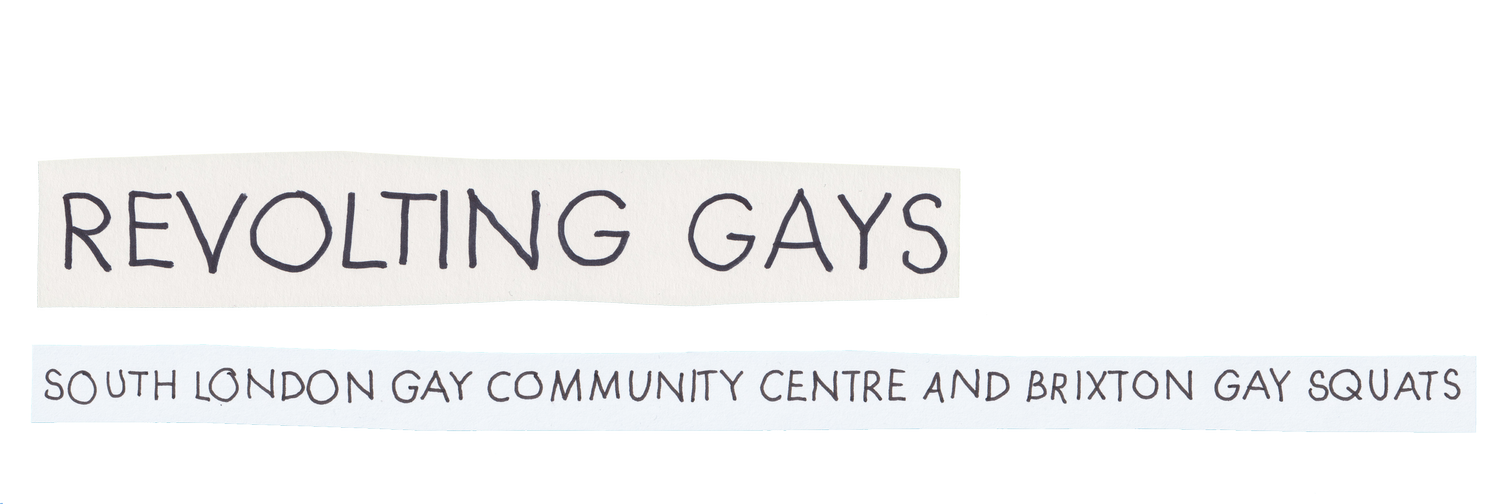Stephen Gee’s Memories of The Gay Centre
Stephen Gee
Stephen Gee's first impression of the gay centre was of a very laid back atmosphere full of men 'slumped around' some colorfully dressed and even with long hair! Although he was familiar with gay politics having gone to the Warwick University NUS Gay Rights Conference and through his involvement with Goldsmith College's GaySoc he went to the centre chiefly for social reasons than the desire to "realise myself as a sexual being" as a gay liberationist.
At the NGRC he had already met Malcolm Greatbanks and Auntie Alice (Alastair Kerr) with his "made up eyes" and long fingernails. He remembers Malcolm 'pompously' pronouncing a clampdown on self-oppressive language at the gay centre and Alex the taxi driver giving him lifts back to his flat in Gipsy Hill from the gay centre meetings. Other memory snapshots of people around the Centre who he stated were not always avid users were of Gary de vere, Colm Clifford, John Lloyd. His perception of Kay was of someone who lived up to his reputation for aggressive flamboyance in drag. He remembers Julian Hows being ‘slightly intimidating’ and his general impression of those days at the gay centre was that it was brittle and not very gentle:
"...you would have to have wanted to stick in there with people who were hostile."
It has to be noted that Stephen, like Micheal Kerrigan, arrived in the gay community in 1976 when the gay centre was ending its days in a fraught atmsophere of factional division.
He remembers Andreas' dance classes vividly:
"Yes, they were very good. Really positive. I really enjoyed those....and I really think if the gay centre had a few more of those things it might have sustained itself more. It was quite exciting."
Would these activities have blossomed more with better run, more secure and spacious premises:
"Yes, but then again if you seemed to have a better equipped, better place it would have made demands on people to be more committed to it. The gay centre I visited in Birmingham was properly run and organised with rotas and there was a gay switchboard on the premises. It was different kinds of people living in different kinds of ways running that. But the politics of the (gay) centre on Railton Road were characterised by certain ideas from gay liberation and sixties counter culture. People thought it would run itself spontaneously."
His comments on 'untogether' gay centre users:

